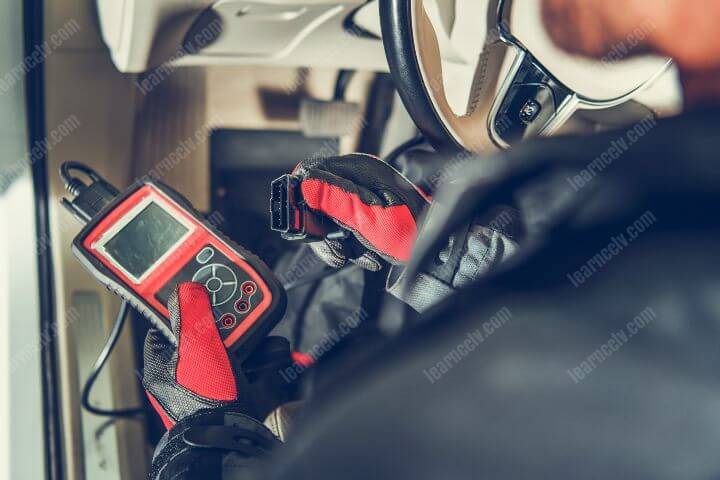Cameras are our superheroes, but they all have their Kryptonite. Let's go over whether or not cameras work with cut wires.
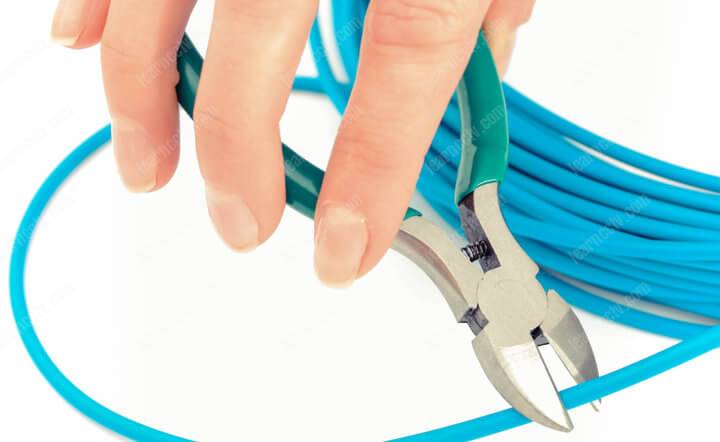
This type of action happens all the time, so be careful.
What wire cutting accomplishes
The cutting of the wires can disable a CCTV camera, but that is not true for all cameras!
Truth is that the cutting of cables is used to disable a CCTV camera, which is a technique used by burglars to refrain from getting caught.
However, their attempt of cutting wires can lead to one of four situations that we will go over.
Disabling
One of the main ones is the disabling of the camera. Though some cameras work with cut wires, most wired cameras do not have a backup system or battery to keep recording.
Disabling a camera means it will not be working. Whether it is from the cutting of wires or any damage to the lens that causes it to stop operating.
Cameras that have been vandalized, or disabled by the cutting of wires can be a red flag that a burglar was around.
Pausing
A couple types of cameras work with cut wires depending on their internal batteries. Some cameras record on SD cards, therefore if they have a backup battery they can record without the wires.
When a camera is on paused you can activate it once again from an app or browser. This can be an easy fix with a replacement wire and will not damage the camera.
Pausing of footage can be only of a few seconds while the battery kicks in or until you purchase a replacement cable.
So if a couple of hours are missing from the footage, the camera was paused. Therefore not damaged or disabled.
Jamming
Jamming is done by a machine that transmits high frequencies to purposefully block the camera's signals, it can be used in this situation.
Wireless cameras work with cut wires as long as they have a connection to the internet and a battery. However, if that connection is through an Ethernet cable, then it can be cut.
If cut, it will jam the camera, and keep it from sending out signals to your app, meaning you will not be able to see the footage live.
Before buying a camera
Like we have seen, certain cameras work with cut wires. Therefore, it might be a feature you want to invest in.
We will go over the following cameras:
- Solar panel cameras
- Battery-operated cameras
- SD cameras
- Wired cameras
- Wireless cameras
Solar panel cameras
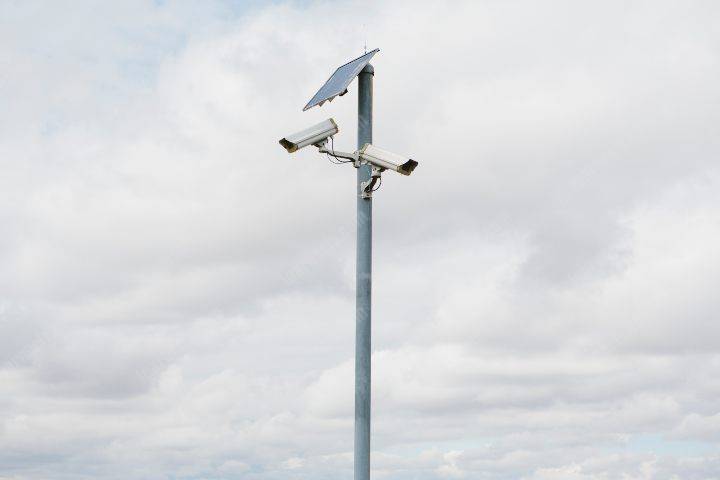
Therefore you must be very cautious about this. For example, utilizing cameras with solar panels can be a great choice depending on where you live.
Bids, rats, and squirrels can ruin and damage your cables and even leave them exposed to water, which can shock someone.
Apart from the chance of thieves and burglars cutting your wires, many animals reside outside.
This can be a great idea if you intend to use this for bird watching with CCTV cameras. Or even for outdoor cameras.
Additionally, it will allow you to save some money while simultaneously keeping your camera safe from animals and water damage.
Battery-operated cameras
A camera that operates only on batteries can also be an option you can look further into. And you might think that the battery can be an added hassle, but it really isn't.
Though some cameras work with cut wires, having battery-operated cameras can keep the camera rolling and even catch a burglar.
In some cases, batteries can even last 180 days, meaning you would only change the battery once a year. Giving you a chance to check on the camera every 6 months or so.
SD cameras
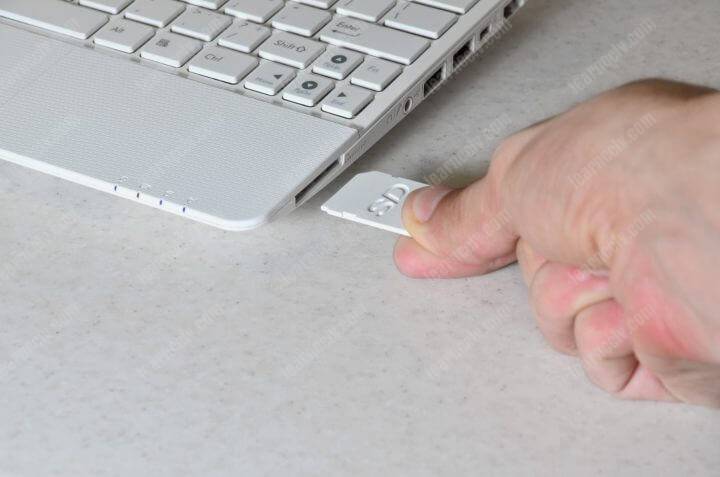
But battery-operated cameras aren't for everyone. They do not rely on connections to the internet as they utilize their SD card to store data.
This means that your footage will not be lost up until the point the outlet cable was cut. However, if the camera runs both on an SD card for storage, and battery to operate, you will not have wires!
Wired cameras
These can be the ones that will give you the most issues. As their name suggests, they are wired.
Not only to the outlet for power but to the internet with an Ethernet cable as well as to transmit the footage and recordings to a DVR or NVR for storage.
Meaning few have backup batteries, and even with one, if the other cables were cut, the camera will be disabled.
It is safer to have these placed indoors as there are fewer chances of damage or cutting of the cameras.
Whereas outdoor cameras are more exposed to bad weather, animals, and criminals.
Wireless cameras
When talking about wireless cameras, you usually have only two cables. The Ethernet cable and the power cable. With some cameras, they can work when one or both cables have been cut.
Ethernet cable
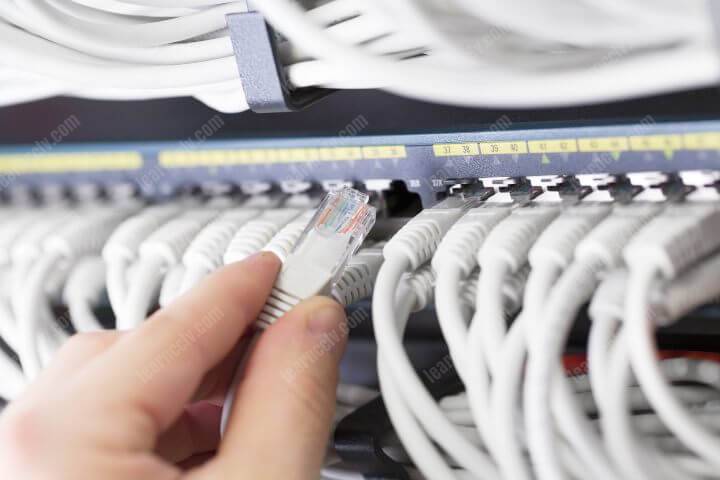
These cameras work with cut wires because they use signals to connect to WiFi and transmit the footage live and upload it to the cloud.
However, if an Ethernet cable is used and cut, the signal stops and the footage will not be uploaded.
But some cameras have other methods in which they can record up to 3 days worth of footage and then upload it once connected to the internet.
Power cable
The power cable is the one that allows the camera to record and have a signal. Therefore, if cut, it will stop the recording for a short period of time.
A backup battery can then kick in and pick up where the recording left off. And depending on the camera, keep recording and store the footage until the connection is back.
Or simply continue to upload it if the Ethernet cable was not cut, or the signal is not lost.
The bottom line
Though sometimes you cannot have it all, you can choose the battery over cables. But you sure can have the best of both worlds.
With an internal backup battery, cameras work with cut wires. Keeping you, your home, and your family safe and sound!
Want to learn more ?
If you want to become a professional CCTV installer or designer, take a look at the material available in the blog. Just click the links below:
Please share this information with your friends...
